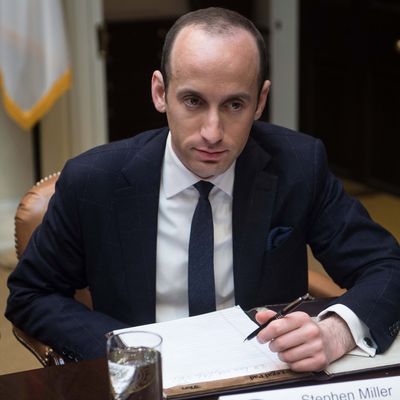
After the extensive litigation over the original Trump administration travel ban, and its revision to address the most egregious legal flaws, observers wondered if, when, and where the first new challenge in court would occur. Turns out federal District Judge Derrick Watson will rule on a suit by the State of Hawaii after arguments on March 15—the day before the revised order goes fully into effect.
Hawaii is technically amending its earlier complaint against the earlier travel ban, but that’s central to the state’s claim that this and the first travel ban represented veiled efforts to impose the “Muslim ban” Donald Trump initially promised as a presidential candidate.
The state’s amended complaint asserts a number of different claims, but primarily emphasizes the new executive order’s alleged discriminatory intent and effect, as well as the harm to Hawaii’s economy.
The religious discrimination argument is one the Ninth Circuit Court of Appeals pointed to, but did not definitively decide upon, in rejecting the Trump administration’s efforts to quash District Judge James Robart’s suspension of the original ban. It’s really not very easy to “fix” since it is based on the president’s own words—and those of his closest associates.
“Given that the new executive order began life as a ‘Muslim ban,’ its implementation also means that the state will be forced to tolerate a policy that disfavors one religion,” lawyers [for Hawaii] wrote. They listed 15 separate instances in which Mr. Trump or his advisers tied the travel restrictions to Muslims or Islam.
That’s not the only inadvertent self-sabotage from Team Trump that is in play in the current suit.
The latest filing noted that one of Mr. Trump’s top aides told Fox News in late February that while the new directive would address the legal issues that had arisen around the ban, “you’re still going to have the same basic policy outcome for the country.”
Neal Katyal, a former acting solicitor general in the Obama administration [who is helping with the Hawaii suit] said Tuesday, “We absolutely agree with the president’s senior adviser, Stephen Miller, who said this executive order is the same as the last one.” Mr. Katyal said, “The same legal problems that infected the first one infect version 2.0.”
It was Miller, of course, who according to most sources was driving the bus that nearly crashed on departure when the first travel ban was released on January 27, hastily prepared without much advance planning.
I understand that Miller is close to Donald Trump and Stephen Bannon, and is considered indispensable to the presidential communications operation. But it does seem he should henceforth either stay away from the promulgation and explanation of complex executive orders, or go on a leave of absence to take a few law school courses.






























